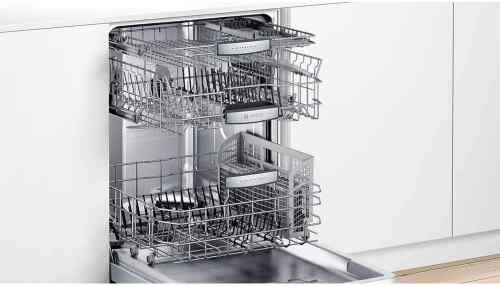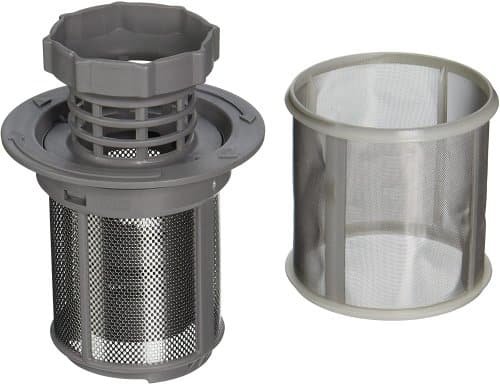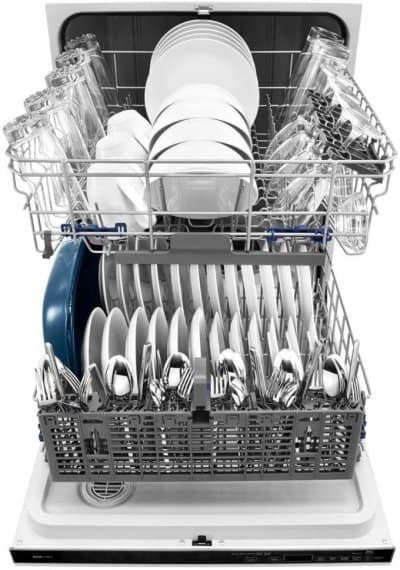Having a dishwasher at home is a time-saving and convenient appliance that helps to keep your dishes clean and sparkling. However, like any other machine, a dishwasher requires regular maintenance to ensure optimal performance and longevity. In this article, we will provide you with a step-by-step guide on how to maintain a dishwasher effectively.
Table of Contents
Understanding the Dishwasher Components
Before diving into the maintenance process, it’s essential to have a basic understanding of the various components of your dishwasher. These include the interior, spray arms, filters, drainage system, and seals. Familiarizing yourself with these parts will make it easier to perform maintenance tasks effectively.
Regular Cleaning and Maintenance
To ensure your dishwasher operates efficiently, regular cleaning is crucial. Here are some important steps to follow:
Cleaning the Interior
Start by removing any debris or food particles from the dishwasher interior. Use a damp cloth or sponge to wipe down the walls, door, and racks. Pay special attention to the bottom of the dishwasher, as it tends to accumulate grime and residue.

Clearing the Drainage System
A clogged drainage system can lead to poor dishwasher performance. Remove the bottom rack and locate the drain. Check for any blockages and remove them using a small brush or toothpick. Rinse the drain with warm water to ensure it’s clear.
Cleaning the Spray Arms
The spray arms distribute water throughout the dishwasher for effective cleaning. Inspect the spray arms for any clogs or mineral buildup. Use a toothpick or small brush to clear any obstructions and rinse them under running water.

Checking and Replacing the Filters
Filters prevent food particles from entering the dishwasher’s pump and spray arms. Regularly inspect the filters and clean them under warm water. If the filters are damaged or worn out, replace them to maintain optimal dishwasher performance.

Ensuring Proper Loading and Detergent Usage
Proper loading techniques and detergent usage play a significant role in maintaining your dishwasher’s efficiency. Follow these guidelines:
Loading the Dishwasher Correctly
Avoid overcrowding the dishwasher as it can hinder proper water circulation. Place dishes, glasses, and utensils in a way that allows water to reach all surfaces. Refer to the dishwasher’s user manual for specific loading instructions.

Using the Right Detergent
Choose a dishwasher detergent that is suitable for your machine and water hardness. Using too much detergent can lead to residue buildup, while using too little may result in poor cleaning. Follow the manufacturer’s guidelines for the recommended detergent amount.
Avoiding Common Mistakes
Certain common mistakes can negatively impact your dishwasher’s performance. Be aware of the following:
Overloading the Dishwasher
Overloading the dishwasher can obstruct water spray and lead to inefficient cleaning. It’s better to run multiple loads if necessary rather than cramming everything into a single cycle.
Using Excessive Detergent
Using more detergent than necessary won’t make your dishes cleaner. Instead, it can leave behind a soapy residue. Stick to the recommended detergent amount for optimal results.
Neglecting the Seals and Gaskets
Regularly inspect the dishwasher’s seals and gaskets for any signs of damage or wear. Cracked or worn-out seals can cause leaks and affect the overall performance of the dishwasher. Replace them promptly if needed.
Additional Tips for Dishwasher Maintenance
Here are a few additional tips to keep your dishwasher in excellent condition:
- Run the dishwasher on a full load to save water and energy.
- Use a dishwasher cleaner once a month to remove any lingering odors and buildup.
- Keep the dishwasher’s exterior clean by wiping it with a damp cloth.
- Leave the dishwasher door slightly ajar after each use to allow moisture to evaporate.
How often should I clean my dishwasher?
It is recommended to clean your dishwasher at least once a month to prevent residue buildup and maintain its performance.
Can I use regular dish soap in my dishwasher?
No, regular dish soap should not be used in dishwashers as it can cause excessive suds and potentially damage the machine.
How can I remove stubborn stains from my dishwasher?
To remove stubborn stains, create a paste using baking soda and water. Apply the paste to the stained areas, let it sit for a few minutes, and then scrub gently with a soft brush or sponge.
Why is my dishwasher not draining properly?
A clogged drain or filter is a common cause of drainage issues in dishwashers. Check and clean the drain and filters to ensure proper drainage.
Should I rinse my dishes before loading them into the dishwasher?
While it’s a good practice to scrape off excess food, pre-rinsing dishes is not necessary. Modern dishwashers are designed to handle food particles and effectively clean dirty dishes.
Conclusion
By following the maintenance steps outlined in this article, you can ensure that your dishwasher continues to function efficiently and provides you with clean dishes every time. Regular cleaning, proper loading techniques, and attention to detail will go a long way in extending the lifespan of your dishwasher.

